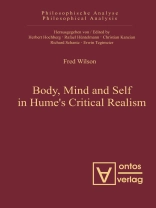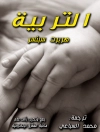This essay proposes that Hume’s non-substantialist bundle account of minds is basically correct. The concept of a person is not a metaphysical notion but a forensic one, that of a being who enters into the moral and normative relations of civil society. A person is a bundle but it is also a structured bundle. Hume’s metaphysics of relations is argued must be replaced by a more adequate one such as that of Russell, but beyond that Hume’s account is essentially correct. In particular it is argued that it is one’s character that constitutes one’s identity; and that sympathy and the passions of pride and humility are central in forming and maintaining one’s character and one’s identity as a person. But also central is one’s body: a person is an embodied consciousness: the notion that one’s body is essential to one’s identity is defended at length. Various concepts of mind and consciousness are examined – for example, neutral monism and intentionality – and also the concept of privacy and our inferences to other minds.
Fred Wilson
Body, Mind and Self in Hume’s Critical Realism [PDF ebook]
Body, Mind and Self in Hume’s Critical Realism [PDF ebook]
Mua cuốn sách điện tử này và nhận thêm 1 cuốn MIỄN PHÍ!
Ngôn ngữ Anh ● định dạng PDF ● Trang 512 ● ISBN 9783110327076 ● Kích thước tập tin 1.6 MB ● Nhà xuất bản De Gruyter ● Thành phố Berlin/Boston ● Được phát hành 2013 ● Phiên bản 1 ● Có thể tải xuống 24 tháng ● Tiền tệ EUR ● TÔI 6294351 ● Sao chép bảo vệ Adobe DRM
Yêu cầu trình đọc ebook có khả năng DRM












